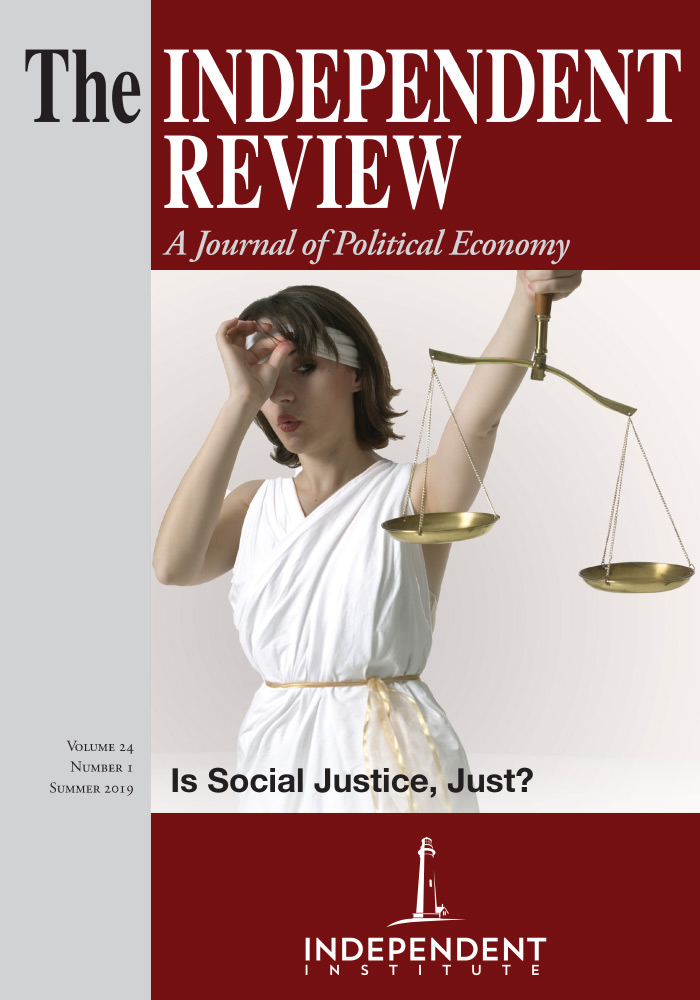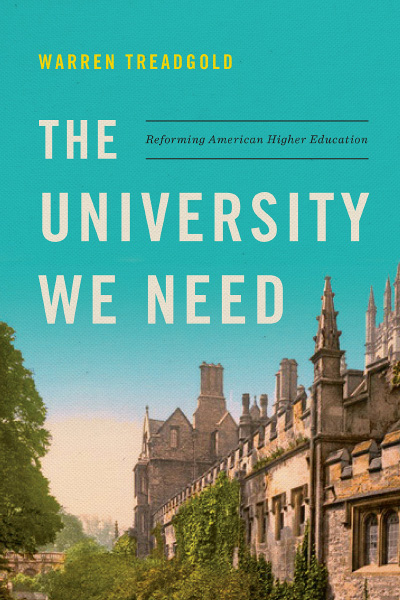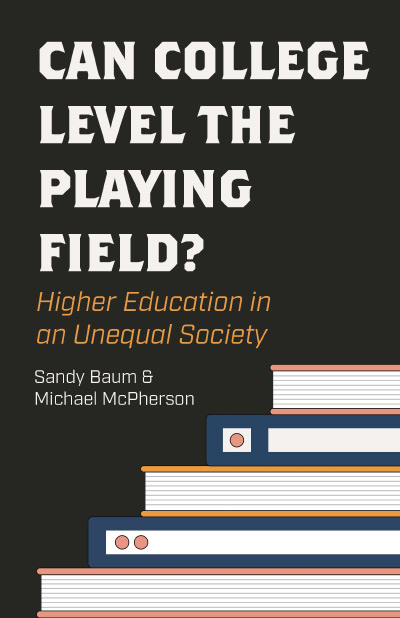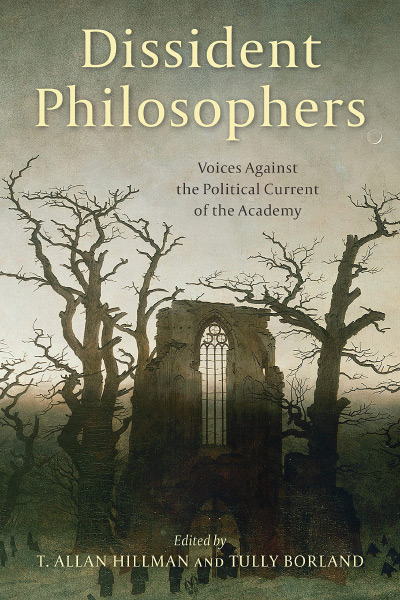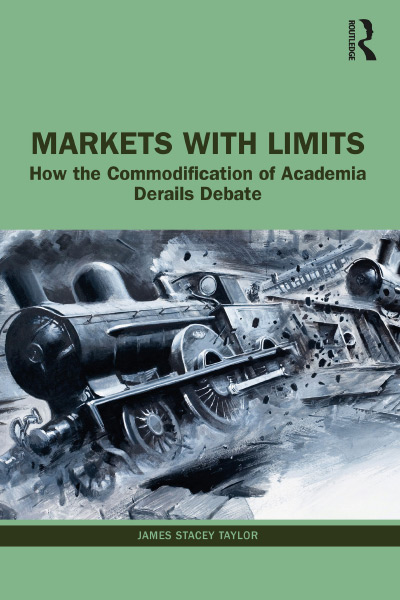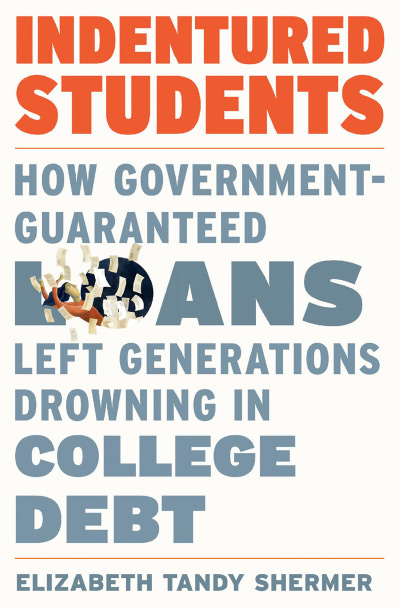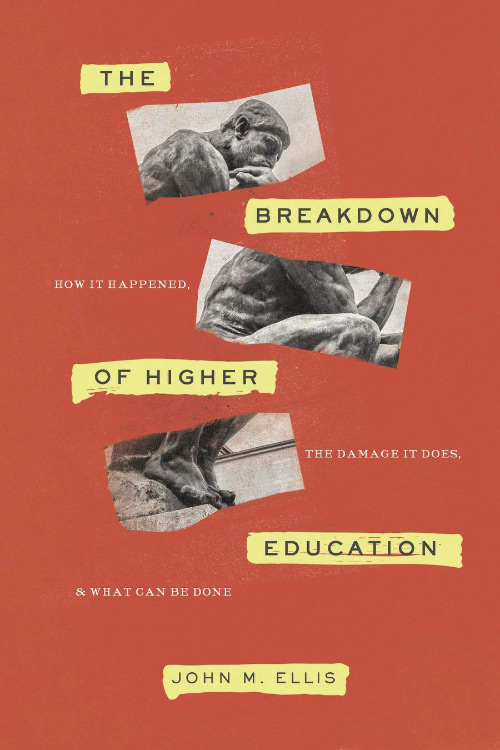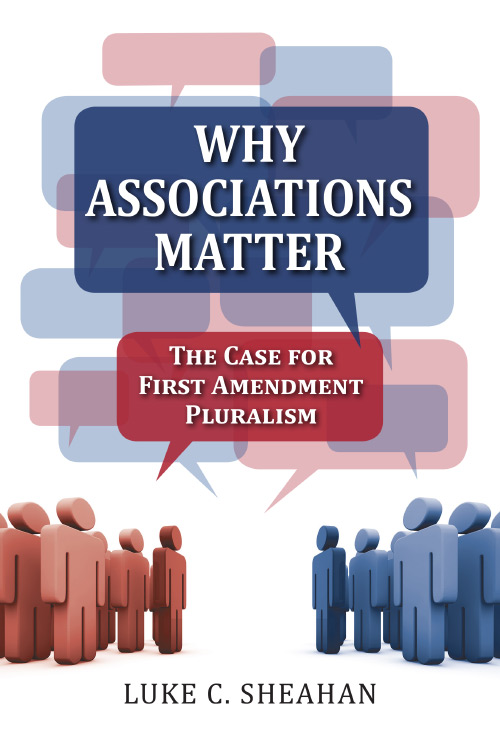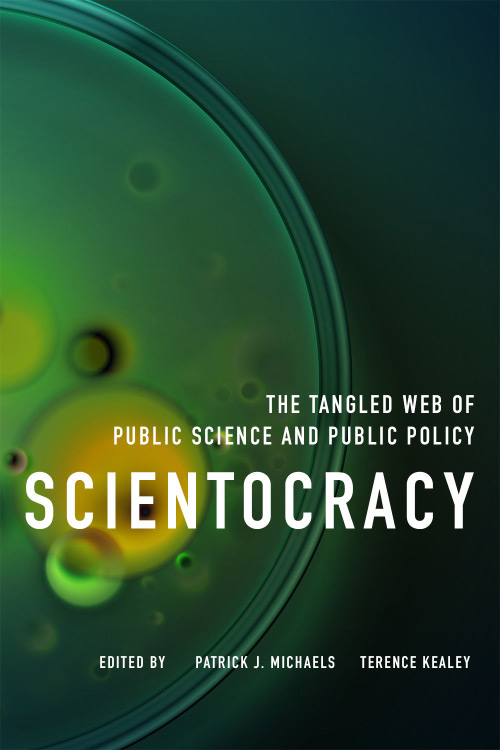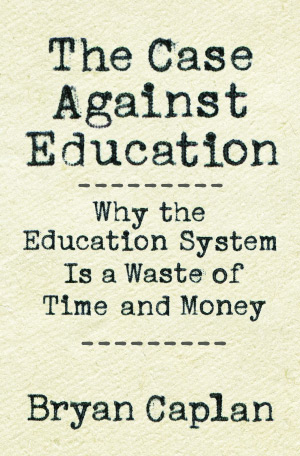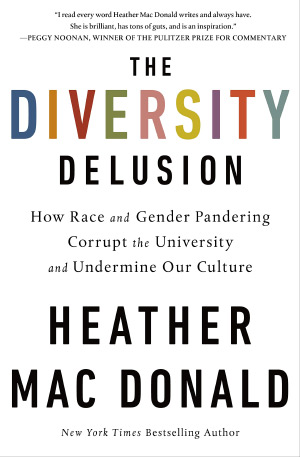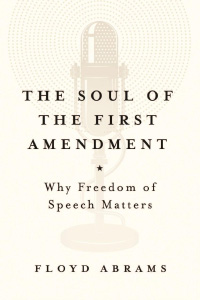The university that we need is not like the university that we have. Warren Treadgold, an accomplished historian at Saint Louis University, argues this point with considerable insight and force—and he offers a novel blueprint for reform: creating a new highly-ranked university from scratch, one that will provide a credible alternative to Harvard, Princeton, and Stanford.
Treadgold is blunt in his condemnation of American universities. Professors fail to adequately educate students because so many of them focus on their own narrow research and barely push their students to learn. He cites a study estimating that the average student’s time devoted to academics outside of the classroom has fallen to just fourteen hours per week. Despite the dwindling effort and dwindling academic accomplishments, grades have risen. The root cause is that professors usually get greater rewards (both professionally and personally, it seems) from their research, so they have little incentive to push students to study and learn. Treadgold’s opinionated chapter “What is Good Teaching?” is particularly harsh in its judgment of online education, which is especially ineffective for weaker students. Dwindling teaching effort allows greater research output, but Treadgold’s “What Is Good Research?” chapter concludes that “roughly half the books and articles published today are not worth publishing” (p. 92).
But the problem is not only lack of teaching (and learning)—it’s also the one-sided, left-of-center ideology disseminated in so many classrooms. In the academy, especially in the humanities department that are dearest to Treadgold, “inclusivity” and “diversity” have come to mean “a striking amount of exclusion and uniformity” through the exclusion of large groups like political conservatives, orthodox Catholics, Evangelical Protestants, and Orthodox Jews, “since many views held by these groups are considered bigoted and ignorant” (pp. 42–43). In our universities, conservatives have become “victims of pervasive discrimination and a hostile work environment” (p. 37). Many in the postmodern professoriate fail to teach their students how to understand the world and one another. Instead they teach about “oppression”—that each group “cannot understand . . . other groups, that the other groups cannot understand it, that attempts by the oppressors to understand the oppressed are themselves oppressive, and that the oppressed have nothing to learn from oppressors” (p. 43).
Treadgold argues that one cause for this equilibrium is that the supply of academic labor consistently outstrips the demand (especially in the humanities). This allows hiring committees to screen candidates along ideological lines. Perhaps we should restrict the supply of new PhD’s in these fields, he muses, before proposing a bizarre idea: a federal government agency called the National Dissertation Review Board (potentially staffed mainly by retired academics), which would give quality ratings to new PhDs. Somehow he believes this could make hiring less political and more objective. “If the United States government can inspect and grade food and drugs and examine the competence of elementary and secondary teachers and students, why should it not examine and evaluate doctoral dissertations and academic publications? . . . Evaluating the quality of doctoral dissertations and the honesty of academic publications may not be the ideal method of judging professors, but it probably is the best method that is feasible” (p. 110). Wow! This is a staggeringly bad idea. Fortunately, it appears that he doesn’t really mean it. Let’s hope that those he is criticizing don’t get a hold of this idea.
In the final section, Treadgold sketches out an idea that does deserve consideration. Although it is quirky in places, his particular game plan begins with the creation of a new world-class university—one with about one thousand professors, five thousand undergrads, and 2500 graduate students. This university wouldn’t be officially “conservative,” but it would cream skim top faculty members who are not left-of-center from today’s top universities, paying them top dollar. It would require students to take a broad range of good survey courses, to broaden their knowledge. Admissions officers would not rely on ethnicity, volunteer work, and non-academic extra-curriculars, but would instead try to attract the brightest students. “Easily offended students or students who insist on saving the world before learning about it should be encouraged to go elsewhere” (p. 130). It would develop departmental colleges, with residences, dining halls, classrooms, and faculty offices organized around groups of related departments. Students simply wouldn’t have a lot of free time for booze, because they would be so immersed in learning. An initial donation of about $1 billion could get the ball rolling. If you are a TIR reader in the position to do this, you’ll want to take a close look at this chapter.
I suspect that someone will attempt this very project in the next decade or two. The price tag is very high—one would need at least a billion or two just to get things off the ground plus a lot more afterward. There are almost fifty private colleges and universities in the U.S. that already have endowments exceeding $1 billion (including Treadgold’s current employer). Harvard, Princeton, and Stanford have endowments exceeding $25 billion (and this doesn’t count the cost of their infrastructure). However, there are now over 500 billionaires in the U.S., according to Forbes. If this project got rolling, it could change the academic landscape in several important ways. One model might be how Fox News changed the television news world—emerging as the most watched network because it tapped into latent demand. However, Fox News also seems to have shifted its competitors to the left, not that top academic institutions have much more room to shift leftward. Competition has proved exceptionally valuable in other fields, forcing incumbents to innovate—perhaps the same would occur in academia. On the other hand, brand (alumni) loyalty is uniquely high in academia and it takes at least a half century for alums to earn the fortunes that they donate to their alma maters—creating a massive barrier to latecomers.
| Other Independent Review articles by Robert M. Whaples | ||
| Summer 2024 | The Journey of Humanity: The Origins of Wealth and Inequality | |
| Summer 2024 | Of Boys and Men: Why the Modern Male Is Struggling, Why It Matters, and What to Do About It | |
| Summer 2024 | These United States: Our Nation’s Geography, History and People | |
| [View All (96)] | ||

